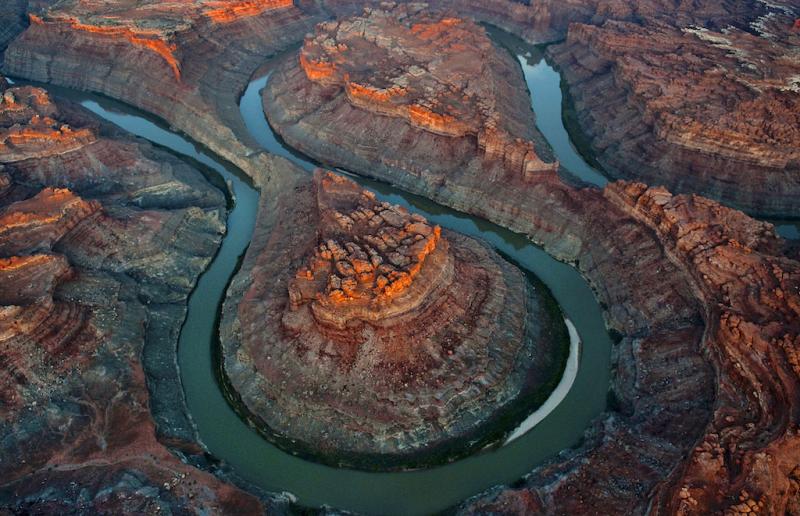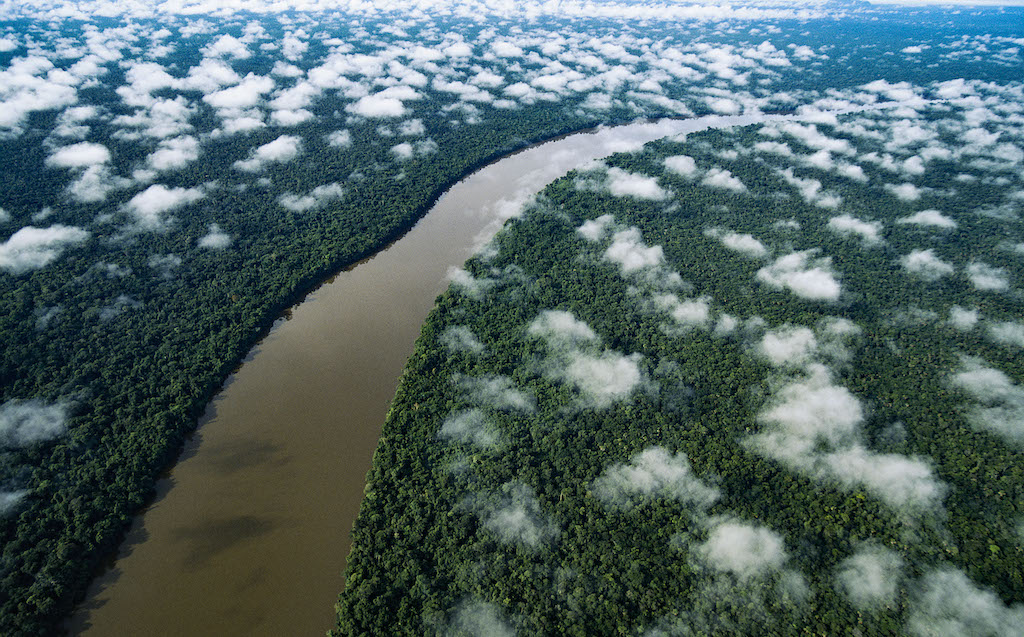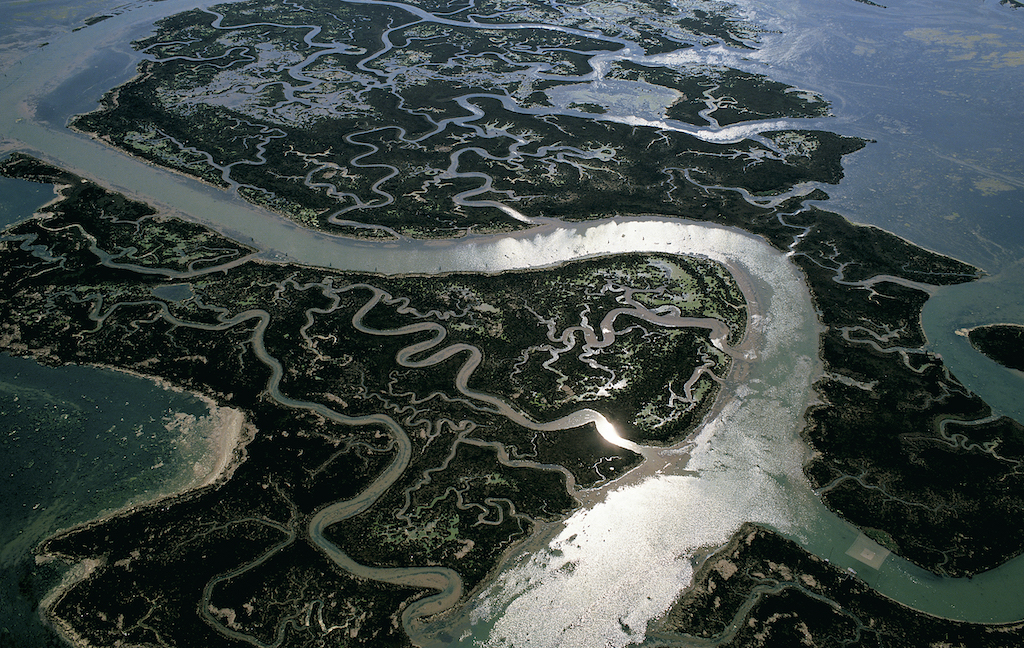River review – gorgeous visuals and a timely message: so what’s not to like? | reviews, news & interviews
River review – gorgeous visuals and a timely message: so what’s not to like?
River review – gorgeous visuals and a timely message: so what’s not to like?
Natural sounds drowned out by rousing music

I would suggest watching River on the largest possible screen, so you can bask in the breathtaking beauty of the visuals.
The answer, of course, is “yes” and the film reveals our propensity for treating rivers merely as resources – exploiting them for our immediate needs without any regard for the longterm consequences. Defoe gives us some startling facts. For instance, we’ve impounded so much water behind huge dams that we’ve actually slowed the rotation of the earth.
Damming rivers may control flooding and provide a source of electricity, but a dammed river is also a dead river – low in oxygen and more likely to support toxic algae blooms than fish. Downstream meanwhile, deltas and flood plains are deprived of nourishing silt, which accumulates, instead, on the bottom of reservoirs where it is a nuisance rather than a boon. And our ability to control the flow of water gives us a false sense of security. By damming, piping, and channeling our rivers, “We’ve made the desert bloom”, says Dafoe, but also fostered “the delusion of infinite abundance.” Instead of providing an endless supply of clean water, though, our rivers are so dangerously polluted with chemicals, sewage, and plastic waste that many have become “unswimmable, undrinkable, even fatal.”
And our ability to control the flow of water gives us a false sense of security. By damming, piping, and channeling our rivers, “We’ve made the desert bloom”, says Dafoe, but also fostered “the delusion of infinite abundance.” Instead of providing an endless supply of clean water, though, our rivers are so dangerously polluted with chemicals, sewage, and plastic waste that many have become “unswimmable, undrinkable, even fatal.”
Onto the wall of a vast dam we see protestors pasting the slogan “Free the River” alongside a woman brandishing a sledgehammer above a large hole and a giant pair of scissors cutting through the wall. Next follows footage of water bursting through a breached dam and cascading down the valley below as Defoe tells us that “rivers possess miraculous powers of recovery; given a chance the life pours back. After years imprisoned behind concrete, the sediment is freed to carry on downriver and nourish the land again.” Is this apparently mild-mannered film actually a call to arms, I wonder?
Visually, the most glorious section comes as a surprise. “The sky has rivers – Amazons and Niles of vapour”, declares Defoe. “Together these sky rivers hold more water than all the streams and rivers on earth combined.” Cue orgasmic footage of broiling clouds resembling waves or cascading waterfalls as they pour over mountain tops and scud across vast tracts of sky. And lightning flashes through storm clouds as they funnel into swirling black vortexes.
Written by Jennifer Peedom and Robert MacFarlane, the message of the film is crystal clear. “The fate of rivers and the fate of humans are inextricable. The lives of our rivers now will determine the destinies of generations to come… . Look after the river and the river will look after you.” Since I agree wholeheartedly with the message, why can’t I endorse the film with heart and soul? The problem is the soundtrack. Rousing music played by the Australian Chamber Orchestra – including Bach’s Chaconne and Water by Johhny Greenwood – drowns out the various sounds of the natural world. Watching waterfalls plunge over rocky ledges to sweep down narrow canyons is so exhilarating that I don’t need the added stimulus of violins plucking at my heart strings and manipulating my emotions.
Since I agree wholeheartedly with the message, why can’t I endorse the film with heart and soul? The problem is the soundtrack. Rousing music played by the Australian Chamber Orchestra – including Bach’s Chaconne and Water by Johhny Greenwood – drowns out the various sounds of the natural world. Watching waterfalls plunge over rocky ledges to sweep down narrow canyons is so exhilarating that I don’t need the added stimulus of violins plucking at my heart strings and manipulating my emotions.
This complaint is not a trivial one. Nature not only looks beautiful, it also sounds extraordinary! And using music to augment natural sights and sounds, as if they were not interesting enough in themselves, undermines the very premise of the documentary. The film argues, after all, that human interference is the problem – we need to learn once again how to respect, understand, and revere nature. Listening to its sounds as well as watching its patterns, therefore, seems to me a necessary starting point, rather than an optional extra.
- River is in cinemas from 18th March
- Read more film reviews on theartsdesk
rating
Share this article
The future of Arts Journalism
You can stop theartsdesk.com closing!
We urgently need financing to survive. Our fundraising drive has thus far raised £49,000 but we need to reach £100,000 or we will be forced to close. Please contribute here: https://gofund.me/c3f6033d
And if you can forward this information to anyone who might assist, we’d be grateful.

Subscribe to theartsdesk.com
Thank you for continuing to read our work on theartsdesk.com. For unlimited access to every article in its entirety, including our archive of more than 15,000 pieces, we're asking for £5 per month or £40 per year. We feel it's a very good deal, and hope you do too.
To take a subscription now simply click here.
And if you're looking for that extra gift for a friend or family member, why not treat them to a theartsdesk.com gift subscription?
more Film
 theartsdesk Q&A: filmmaker Dag Johan Haugerud on sex, love, and confusion in the modern world
The writer-director discusses first-love agony and ecstasy in 'Dreams', the opening UK installment of his 'Oslo Stories' trilogy
theartsdesk Q&A: filmmaker Dag Johan Haugerud on sex, love, and confusion in the modern world
The writer-director discusses first-love agony and ecstasy in 'Dreams', the opening UK installment of his 'Oslo Stories' trilogy
 Blu-ray: Two Way Stretch / Heavens Above
'Peak Sellers': two gems from a great comic actor in his prime
Blu-ray: Two Way Stretch / Heavens Above
'Peak Sellers': two gems from a great comic actor in his prime
 Late Shift review - life and death in an understaffed Swiss hospital
Petra Volpe directs Leonie Benesch in a compelling medical drama
Late Shift review - life and death in an understaffed Swiss hospital
Petra Volpe directs Leonie Benesch in a compelling medical drama
 The Naked Gun review - farce, slapstick and crass stupidity
Pamela Anderson and Liam Neeson put a retro spin on the Police Squad files
The Naked Gun review - farce, slapstick and crass stupidity
Pamela Anderson and Liam Neeson put a retro spin on the Police Squad files
 theartsdesk Q&A: actor Lars Eidinger on 'Dying' and loving the second half of life
The German star talks about playing the director's alter ego in a tormented family drama
theartsdesk Q&A: actor Lars Eidinger on 'Dying' and loving the second half of life
The German star talks about playing the director's alter ego in a tormented family drama
 The Fantastic Four: First Steps review - innocence regained
Marvel's original super-group return to fun, idealistic first principles
The Fantastic Four: First Steps review - innocence regained
Marvel's original super-group return to fun, idealistic first principles
 Dying review - they fuck you up, your mum and dad
Family dysfunction is at the heart of a quietly mesmerising German drama
Dying review - they fuck you up, your mum and dad
Family dysfunction is at the heart of a quietly mesmerising German drama
 theartsdesk Q&A: director Athina Rachel Tsangari on her brooding new film 'Harvest'
The Greek filmmaker talks about adapting Jim Crace's novel and putting the mercurial Caleb Landry Jones centre stage
theartsdesk Q&A: director Athina Rachel Tsangari on her brooding new film 'Harvest'
The Greek filmmaker talks about adapting Jim Crace's novel and putting the mercurial Caleb Landry Jones centre stage
 Blu-ray: The Rebel / The Punch and Judy Man
Tony Hancock's two film outings, newly remastered
Blu-ray: The Rebel / The Punch and Judy Man
Tony Hancock's two film outings, newly remastered
 The Ballad of Suzanne Césaire review - a mysterious silence
A black Caribbean Surrealist rebel obliquely remembered
The Ballad of Suzanne Césaire review - a mysterious silence
A black Caribbean Surrealist rebel obliquely remembered
 Harvest review - blood, barley and adaptation
An incandescent novel struggles to light up the screen
Harvest review - blood, barley and adaptation
An incandescent novel struggles to light up the screen
 Friendship review - toxic buddy alert
Dark comedy stars Tim Robinson as a social misfit with cringe benefits
Friendship review - toxic buddy alert
Dark comedy stars Tim Robinson as a social misfit with cringe benefits

Add comment